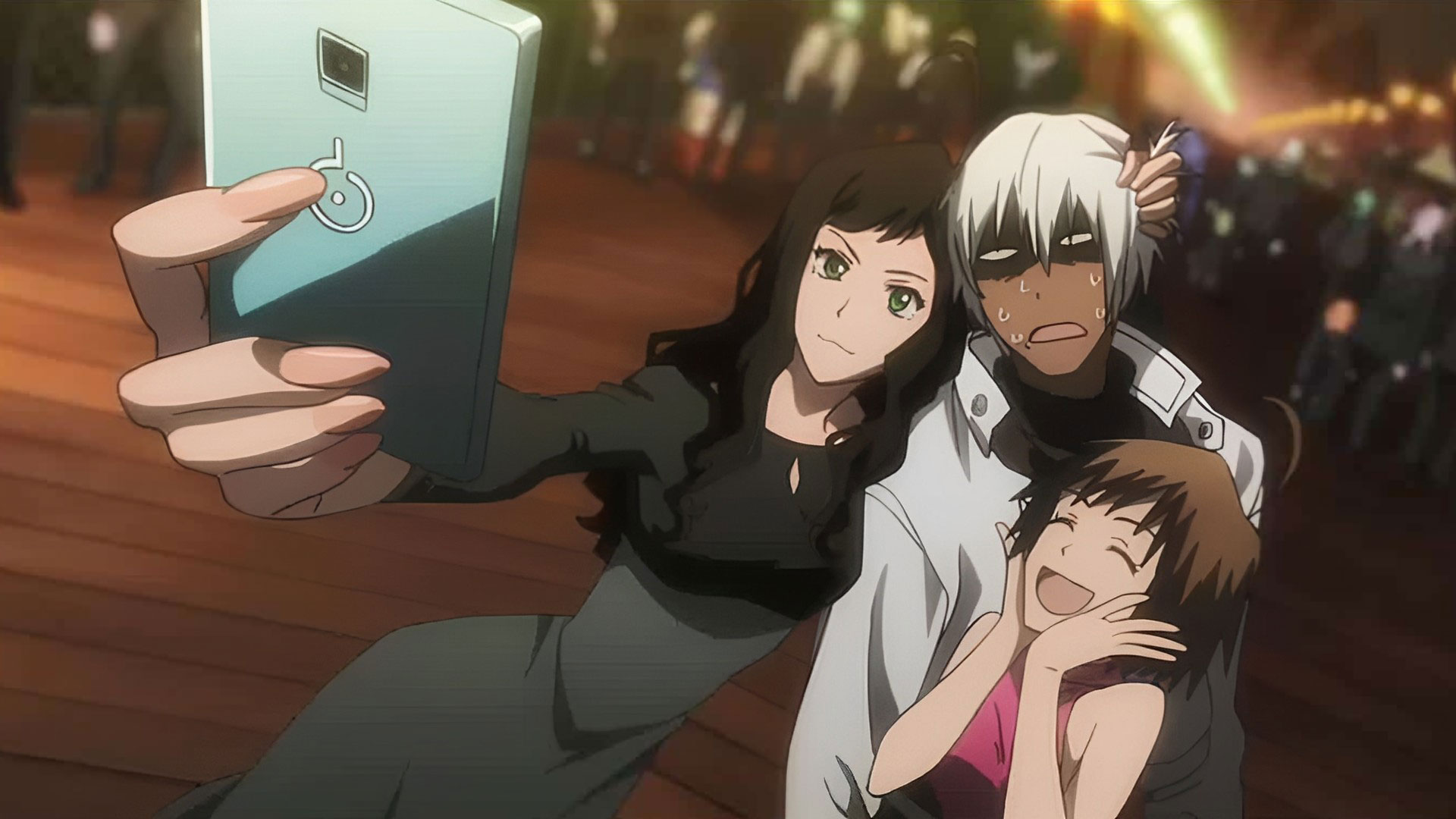Being a sidekick is fine.
Usually, the main character of a series is also its hero, its protagonist. He's overpowered, he's the one who drives the plot forward, he's the one to save others or change their lives.
That's not the case with Kekkai Sensen. This story is told from the perspective of Leonardo Watch, who definitely is not the strongest person in the whole cast, and, if we think about it, he's the most plain and normal out of the bunch. On one hand, that makes him extremely relatable: he learns how to live in a weird big city, stresses about work and money, struggles with guilt, and tries to grow up. But he's not the one who delivers the final blow to the big baddie. He never is.
His plotline revolves around the All-Seeing Eyes of God, the artifact that he has been adorned with that allows him to see things that regular people can't. And despite being the narrator of the story of Kekkai Sensen, he's not a hero: he's merely a spectator. The one who witnesses everything that happens around, the one who would live to tell, but not the one who takes the most active engagement in the action.
Basically, this is a story told from a side character's point of view. And that's what makes Kekkai Sensen so interesting.
The anime had an additional plotline that made Leonardo stand out a bit more than in the manga, tying together the episodic nature of the original, moving Leo to the protagonist's spot on a few occasions but then ultimately dragging him out of it, leaving him once again to watch how the events will unfold after his involvement. It's in his name, after all. He's designed to be the one to look at things thoroughly, to watch, to experience. He wasn't the one designed to actively participate in the madness going on around him.

A brief look at openings and endings shows us that the real hero of this story, the real protagonist, is Klaus v. Reinherz, Leonardo's boss and the leader of the whole organization that employs Leo. He checks out all the points in the lists of protagonist's stencils: he's overpowered, he looks weird, he has unshakeable morals, and a heart so big it can fit a whole Manhattan. He changes lives — he changed Leo's life and the lives of everyone else who joined the organization.
Despite the episodic nature of both the show and the manga, there is a certain continuous plotline going through, tightly tied with the character development. And we're watching the whole story unfold through the sidekick's eyes.

